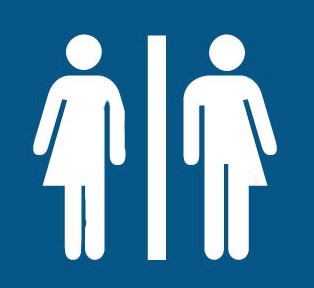Destroyer, "Kaputt" And Why Everything's Fine With The Birds And The Environment And Stuff
Okay. It’s been fun (is that the right word?) getting all hysterical about the great planetary die-off this week. (Sure, yes, “fun” is right.) But, really, everything’s going to be okay.
As Discovery’s Emily Sohn writes,
“Such massive, dramatic and high profile events have fueled concerns that nature is coming to an end, or at least that something weird and disturbing is going on in the animal kingdom. But, experts say, massive die-offs like these are not at all unusual.”
Sohn talked to various nature scientists who assured her that all the “mass mortality events” are really no big deal. You get a few of them happening around the same time, I guess, and everybody freaks out. The ball gets rolling, and with our ever-increasing ability to know, within forty minutes, that a bunch of dead birds were found on a street in Sweden, well, the world’s a big place. If you go looking, you’ll always be able to find something. According to the United States Geological Survey, for example, there have been at least 16 die-offs of more than 1,000 blackbirds or starlings in the past 30 years. Swarms of bats and bees succumb to mysterious disease all the time, apparently, and thousands of fish go belly up every time it rains or something. The blackbirds in Arkansas were just scared and too stupid to not fly themselves really fast into things like houses and the ground. (Well, that’s not really fair: they were woken from their sleep by fireworks and can’t see well in dark. I regularly stumble into a wall or hit myself in the head with my refrigerator door late at night.) “They didn’t fall from the sky,” said Robert Meese, an avian ecologist at the University of California, Davis. “They flew from the sky. That makes it less weird.” (But more stupid. Poor, stupid birds.)
So end days may not be upon us after all. In fact, judging from this highly enjoyable new video from Canadian art-rocker Dan Bejar’s Destroyer, the earth’s environment is not only healthy enough to sustain beautiful flocks of wild geese, but majestic blue whales can join them in the sky with the floatation help of a small balloon tied on a string.
See, everything’s perfectly normal!
New York City Has Healthier Babies, Because They Want Them

In 2009, according to the numbers just released by the City at the end of 2010, New York City had 126,774 live births! And 90,000 pregnancies — that were reported, at least! — ended in chosen termination. So of course the Archbishop is weeping and freaking out.
According to the Department of Health: “For women under the age of 25, more pregnancies end in induced termination than in a live birth or spontaneous termination.”
Other fun facts: almost 15% of abortions in NYC were for married women. I don’t know if that sounds low or high to me!
Anyway, nobody tell the Church, but this doesn’t even taken into account the thousands upon thousands of morning-after pills dispensed in the City. (There’s a reason it doesn’t take them into account, by the way!) It also doesn’t count the most likely hundreds of thousands of would-be pregnancies that last only a few minutes or hours, that are then ended by God, due to his mysterious ways and designs — would-be pregnancies that no one ever knows about, and boy howdy, don’t you just think that if the Catholics ever stopped to think about this, they’d never get anything done ever again and wouldn’t have any time to object to art shows?
All this reproductive health and choice means — or, to be fair to our statistics-minded friends, is associated with, if not related to! — that Manhattan has one of the best infant health rates in the country.
In case you are preparing to be an infant yourself, rest easy. You’re doing pretty great (especially if you’re a white infant), what with the infant mortality rate in NYC now being just 5.3 per 1000 births. (One hundred years ago, it was about 120 per 1000 births in New York City.)
In the U.S. overall, the rate is now about 6.6 per 1000. But if you live in Manhattan, it’s just 4.1 per 1000 births.
In other news, only 389 people died from firearms in 2009. And only 57 of them were 19 or younger!
In slightly less good news: are you black in New York City and 35 and a half years old? Congratulations! You’re at the exact statistical midpoint of your life.
Jann Wenner, Senior Citizen
Happy birthday to Rolling Stone founder Jann Wenner, who turns 65 years young today. Where did the time go?
The Streets Are Paved With Snowy Garbage

New York now: a city where the fast-falling precipitation drapes the piles of uncollected rubbish in a thin layer of winter’s wonder. I am absolutely not being insincere when I say there’s an eerie kind of beauty to it. At least now; by tomorrow it’s just gonna look like trash and ruin again.

Photojournalism courtesy of Tom Scocca.
The Great British Granny Bang Explained
Confused about the current trending Twitter topic “Great British Granny Bang? Here’s some context. Hope that helps!
Don Tyson, 1930-2011
Don Tyson, 1930–2011

Don Tyson, the Arkansas businessman who turned his family’s chicken farm into a fortune 500 company, Tyson Foods, has died of cancer. He helped develop Chicken McNuggets for McDonald’s and KFC’s Rotisserie Gold. As Little Rock financial analyst Mark A. Plummer told The New York Times in 1994, “It was pretty much Don’s vision that fueled the company. He saw that if you added more convenience by further processing the chicken, consumers would pay for it.”
Our Desperate, 250-Year-Long Search for a Gender-Neutral Pronoun

All of a sudden Supreme Court judge Antonin Scalia decided to revive the crazymaking debate regarding the Fourteenth Amendment’s protection for women — or, apparently, lack thereof. Here is what Justice Scalia told California Lawyer: “Certainly the Constitution does not require discrimination on the basis of sex. The only issue is whether it prohibits it. It doesn’t…. If the current society wants to outlaw discrimination by sex, hey we have things called legislatures, and they enact things called laws. You don’t need a constitution to keep things up-to-date. All you need is a legislature and a ballot box. You don’t like the death penalty anymore, that’s fine. You want a right to abortion? There’s nothing in the Constitution about that. But that doesn’t mean you cannot prohibit it. Persuade your fellow citizens it’s a good idea and pass a law. That’s what democracy is all about. It’s not about nine superannuated judges who have been there too long, imposing these demands on society.” That is pretty rich. I guess he thinks that these superannuated judges only get to haul in the Equal Protection Clause of the Fourteenth Amendment when it benefits the likes of George W. Bush.
Okay, so it is true that the authors of the Fourteenth Amendment took pains to ensure that women were excluded from its protection, by introducing the word “male” into the constitution for the first time. But. Oh, god! There were substantial problems with the original text of the Fourteenth Amendment. And ever since the Supreme Court case of Reed v. Reed, 1971, the Fourteenth Amendment has provided an explicit basis for granting women equal rights as American citizens. (By the bye, one of Sally Reed’s lawyers was Supreme Court Justice Ruth Bader Ginsburg; I wonder whether Justice Ginsburg, who has been seen on an elephant with Justice Scalia, for the two are said to be close friends, will have anything to say about his recent remarks.)
In any case, the original rationale for excluding women from the protections of the Fourteenth Amendment did not hold and has not ever held any water from the moment it was ratified until now. All of which brings us to the backstory of the Fourteenth Amendment, and to the thorny history of gender-neutral language in English.
Prescriptive grammarians have been calling for “he” as the gender-neutral pronoun of choice since at least 1745, when a British schoolmistress named Anne Fisher laid down the law in A New Grammar. This Anne Fisher was a terrific mensch, an entrepreneur who ran her own school, including night classes for women (“betwixt the hours of Five and Eight at Night”) — this, in the 18th century.
Languages with gendered nouns require the development of an inbuilt, bone-deep sense of gender neutrality. In Spanish, for example, “table” is a feminine noun, but you don’t really think of the table as being a girl at all; it’s just a table. That brain-wired kind of gender neutrality is what Anglophones are meant to be apprehending in words like “mankind” or “citizens”; one is meant to be thinking “everyone,” even though the word itself has got some gender to it, like “table” does in Spanish. The gender is supposed to evaporate right off such words according to the sense of what is being said. Or at least this was Anne Fisher’s view, and if people didn’t want to persist in being so horrible to one another, it would work just fine.
So Fisher’s elegant prescription regarding gender-neutral “he” caught on, and long remained the formal solution of choice. This is so even though certain high-octane English prose stylists had been resorting to singular “they” for this purpose from Chaucer onward. (Singular “they” suffers from a fatal and insurmountable defect, one pointed out quite well by Mx. Justin Vivian Bond this week: namely, that “they” is plural.) But by the late 1840s, the long-fought effort to impose true gender neutrality onto “he” had collided headlong with the political realities of that socially volcanic era.
Those 19th-century males who were hell-bent on keeping women in their place are manifestly to blame for the failure of English to assimilate a full concept of gender neutrality. Because it turns out that a lot of jerks who didn’t care for the idea of women practicing law or voting were willing to use pronouns as a serious argument in order to deprive them of equal rights — yes, to use pronouns as a weapon against women, and to take their specious arguments to the courts, and to get their way too.
The fat really hit the fire after the Civil War because the language of the Fourteenth Amendment, which granted rights to the newly freed slaves, came to include the word “male” in order that no doubt should be left as to the new condition of black women; they might be free, they might be “persons” or “citizens,” but they sure as hell weren’t voting. (Until then, the word “male” had been absent from the Constitution.) Susan B. Anthony and Elizabeth Cady Stanton fought like a couple of tigers to ensure that the Fourteenth Amendment was written in gender-neutral language, but no soap. Which takes us up to 1868:
Bradwell v. Illinois (83 U.S. [16 Wall.] 130) concerned the editor of the Chicago Legal News, Myra Bradwell, who, having passed the state bar examination, was refused a license because she was a woman. Petitioning the supreme court of Illinois in September, 1869, Bradwell cited the state’s interpretation rule: “When any party or person is described or referred to by words importing the masculine gender, females as well as males shall be deemed to be included.”
In denying Bradwell’s petition, however, the Illinois court simply pointed out that the state’s interpretation rule did not apply “when there is anything in the subject or context repugnant to such construction.” What was “repugnant” to the court was the idea that women might hold public office, including, strictly speaking, the “office” of attorney. The U.S. Supreme Court later denied an appeal based on the Fourteenth Amendment.
And then it got worse!
In 1872, Susan B. Anthony and fifty other women registered to vote in Rochester, New York, and got into all kinds of hot water. Anthony was arrested and freed on bail, at which point she took to the lecture halls to rail against sexist pronouns:
[I]t is urged [that] the use of the masculine pronouns he, his, and him, in all the constitutions and laws, is proof that only men were meant to be included in their provisions. If you insist on this version of the letter of the law, we shall insist that you be consistent, and accept the other horn of the dilemma….
“There is no she, or her, or hers, in the tax laws,” concluded Anthony, blasting her opponents to smithereens. “The same is true of all the criminal laws.”
I insist if government officials may thus manipulate the pronouns to tax, fine, imprison, and hang women, women may take the same liberty with them to secure to themselves their right to a voice in the government.
Moded corroded, right? But no, she lost anyway! First the judge told the jury to find Anthony guilty; when her lawyer objected, the judge tossed the jury out completely and pronounced her guilty himself. Then she didn’t get to appeal, because her lawyer had gone and paid the fine (“chivalrously,” if you can believe).
Now you’d think that these high-profile cases would have created a lot of ruckus among those writers who took on the semantic aspects of the pronoun question, but you’d be wrong. There was a flurry of newspaper articles from the late 1860s through the 1880s, some calling for an altogether new pronoun, some plumping for singular “they,” but none brought up the very serious difficulties liable to be endured by women as the direct result of pronoun ambiguity. The apoplexy-inducing condescension of egregious buffoon Richard Grant-White in The Galaxy of August, 1868 was by no means unusual:
A speaker of good common sense and of fair mastery of the mother tongue would say, “If a man wishes to sleep, he must not eat cheese for supper,” where man, as in the word mankind, is used in a general sense for the species. Any objection to this use of man, and of the relative [sic] pronoun, is for the consideration of the next Woman’s Rights Convention, at which I hope it may be discussed with all the gravity beseeming its momentous significance.
Throughout the troubled 19th century and beyond, a lot of English speakers continued to fall back on singular “they,” particularly in colloquial speech. This solution, however, continued to be frowned on by the best authorities, by whom I mean the Fowler brothers, the greatest English grammarians who ever lived.
They, them, their, theirs, are often used in referring back to singular pronominals (as each, one, anybody, everybody), or to singular nouns or phrases (as a parent, neither Jack nor Jill), of which the doubtful or double gender causes awkwardness. It is a real deficiency in English that we have no pronoun, like the French soi, son, to stand for him-or-her, his-or-her (for he-or-she French is no better off than English). Our view, though we admit it to be disputable, is clear — that they, their, &c.;, should never be resorted to, as in the examples presently to be given they are. […]
Anybody else who have only themselves in view. — Richardson. (has … himself)
Ce n’est que le premier pas qui coûte, in novel-writing as in carrying one’s head in their hand. — S. Ferrier. (one’s … one’s)
Everybody is discontented with their lot in life. — Beaconsfield. (his)
For all its persuasiveness and grace, no conclusive victor in the pronoun wars has emerged in the hundred-odd years since the above passage was written.
Speculative fiction has concerned itself with the thorniest gender issues for about forever. As far as gender-neutral neologisms go, the earliest attempt to grapple with those in speculative fiction that I know of was made by Austin Tappan Wright in Islandia, a utopian fantasy written in secret before the author’s sudden death in 1931 (published 1942). Wright did away entirely with the words “wife” and “husband” in this book, substituting the unisex word alia (“sharing-lover”). The Islandian world is kind of haute-agrarian, a Luddite culture, slow, quiet, gentle, with a minimum of gender differences (no real division of labor between the sexes, for example) and very loose connections between couples (all of whom are straight, as I recall).
Ursula Le Guin’s Earthsea series The Left Hand of Darkness, published in 19689, contains the immortal words, “The King is pregnant,” and it opened the floodgates for speculative fiction written along feminist lines, complete with pronoun-neologizing.
The elegant prose stylist was at war for decades with the equally powerful feminist inside Le Guin; in 1979, she practically shouted, in Is Gender Necessary: “I utterly refuse to mangle English by inventing a pronoun for ‘he/she.’ ‘He’ is the generic pronoun, damn it.” But eventually Le Guin would do just that, rewriting the first chapter of The Left Hand of Darkness using new pronouns of her own, and offering the “repronouncing” version as an appendix to a new edition.¹
The 1970s saw the next wave of pronoun debates — not coincidentally, in the wake of a second women’s movement. There was a volley of new pronouns, despite the fact that none of the 19th-century ones had gotten anywhere. By the end of the 1970s over eighty new gender-neutral pronouns had been coughed up, including en, thon, hir, hesh, hizer, hirm, sheehy, and sap. As well, the currently fashionable “she” was proposed around this time.
In 1970, Dana Densmore’s article “Speech is the Form of Thought” appeared in No More Fun and Games: A Journal of Female Liberation; Densmore is evidently the first U.S. advocate of “she” as a gender-neutral pronoun, a solution many writers, particularly academic writers, favor today. (There are also proponents of alternating “he” and “she” — among them, interestingly, Justice Ginsburg.)
Densmore’s ludicrous claim was that “’she’ is appropriate for the ‘he or she’ usage because within the one word it contains both the old ‘he’ and the old ‘she.’” The fact that the new “she” also consists entirely of the old “she” seems to have escaped her entirely.
Densmore admits that there would be “some confusion during the transition period,” while people get used to the idea of an “asexual she”. And after it too, I fear. But the confusion is good, Densmore says, because “if nothing else, it would show men how it feels to have one’s inclusion uncertain and permit women a hint of what it feels like to live in a world that is theirs” (emphasis in original). Her other suggestions, “herm” and “heris,” follow a similar logic. “The old words will have to be scrapped entirely,” she explains breezily.
Forty years on there has been a serious move toward “she,” but “herm” and “heris” are both non-starters. I venture to suggest that “she,” too, will eventually fail, because it won’t reach escape velocity out of the academy and into the wider world. The logic of it is all wrong, as Densmore unwittingly demonstrates in her remarks above. On the one hand there are those who are championing “she” as a true gender-neutral pronoun when a different and highly specific sense has been fixed in that word for centuries, so that the proposal makes no more sense than suddenly calling all men and women “women”; on the other, there are those who seek to draw attention to gender inequality by forcing extra consideration on women every time an indeterminate pronoun heaves into view. If it is outmoded to open a woman’s door for her or light her blasted cigarette, what are we to make of this? Where’s the equality in it? It seems “not a solution, but a retribution,” as one poster on a WordReference forum described it, “substituting one chauvinism for another.”
The two aims, one semantic and one political, are at each other’s throats.
Despite the lack of clarity or sense in using gender-neutral “she,” it seems that those who have been through graduate school in the humanities are generally afflicted with it. Even the best prose stylist of my generation, David Foster Wallace (whose mother is a superb — and hilarious — grammarian²) fell victim to “she.”
Even setting aside the very practical issues of using gendered pronouns for whom they are not appropriate, a situation which certainly needs fixing, even men and women aren’t served well in our pronoun setup. And still, among the non-academic writers of my acquaintance, “he” wins the day, hands down, man or woman, regardless of political convictions. Within that generation of American writers educated in the late 20th century, academic writers lean to “she” and journalists, broadly speaking, to “he.” Steven Mikulan, a Los Angeles journalist who writes like an angel and whose politics are very far left, did not hesitate to fix me with a gimlet eye and unequivocally pronounce: “he.” I asked a ton of people, and while there were a few in favor of singular “they,” this exchange with my old friend Michael, a San Francisco musician, composer and poet (and executive, by day) is representative:
Me: Do you write “she” for indeterminate pronoun? What do you do at work?
Michael: At work we make ugly constructions to avoid “he.” Every once in a while, somebody uses “she” and it comes off smarmy, in my estimation. Either it’s a slur against women, or it’s giving women a gold star, either of which is annoying.
Me: NO WONDER I LOVE YOU SO MUCH
Michael: Lots of ugly sentences like “If a person smokes a hookah, they are likely to retain a tang of smoke.”
Me: Yeah, they! Richard actually argues for this, I couldn’t believe it. Many have, of course.
Michael: It’s understandable, I’ll give it that. I prefer “he,” but that’s cuz I’m old. “One” makes one trip over one’s feet.
Me: OMG! Me too! I’m all, I am a woman and I am involved in mankind, you dickheads. BUT. The sexism part really is not nothing.
Michael: Yes, exactly. There really is a sexist undertow to the whole thing. Sort of like the expression “You suck” which (am I wrong) presumes that sucking is a bad thing, but everyone does it except the straight dudes. Ergo, sexist and homophobic, but invisibly so.
Me: OMG is it really, do you think?! I never even thought about sucking literally? Or maybe I thought it was like your grandmother teaching you to suck eggs. (Not that I ever understood that.)
¹ The evolution of Le Guin’s thinking is marvelously sane, but complicated; the story is covered in detail in Anna Livia’s Pronoun envy: literary uses of linguistic gender, OUP 2001.
² Her book, Practically Painless English, I recommend unreservedly to all grammar wonks and lovers of comic literature.
Maria Bustillos is the author of Dorkismo: The Macho of the Dork and Act Like a Gentleman, Think Like a Woman.
Bird Songs For The Apocalypse (Or, The Last Mixtape Any Of Us Will Ever Listen To)
I guess it shouldn’t come as any surprise that a list of rock songs with the word “bird” in the title would be a list of great songs. After all, birds fly (or, well, they used to) and rock stars like to pretend to fly by using drugs and airplanes. Anyway, with the recent planetary news, birds are on the brain. It’s not hard to connect the dots (though it is very hard to do so as wonderfully as some other people do): the world needs a soundtrack to end to. And, actually, we could do worse.
'The 4-Hour Body': Sounds Great, If You Want to Weigh Your Poo
“The 4-Hour Body reads as if ‘The New England Journal of Medicine’ had been hijacked by the editors of the SkyMall catalog. Some of this junk might actually work, but you’re going to be embarrassed doing it or admitting to your friends that you’re trying it. This is a man who, after all, weighs his own feces, likes bloodletting as a life-extension strategy and aims a Philips goLite at his body in place of ingesting caffeine.”
— Oh man.
